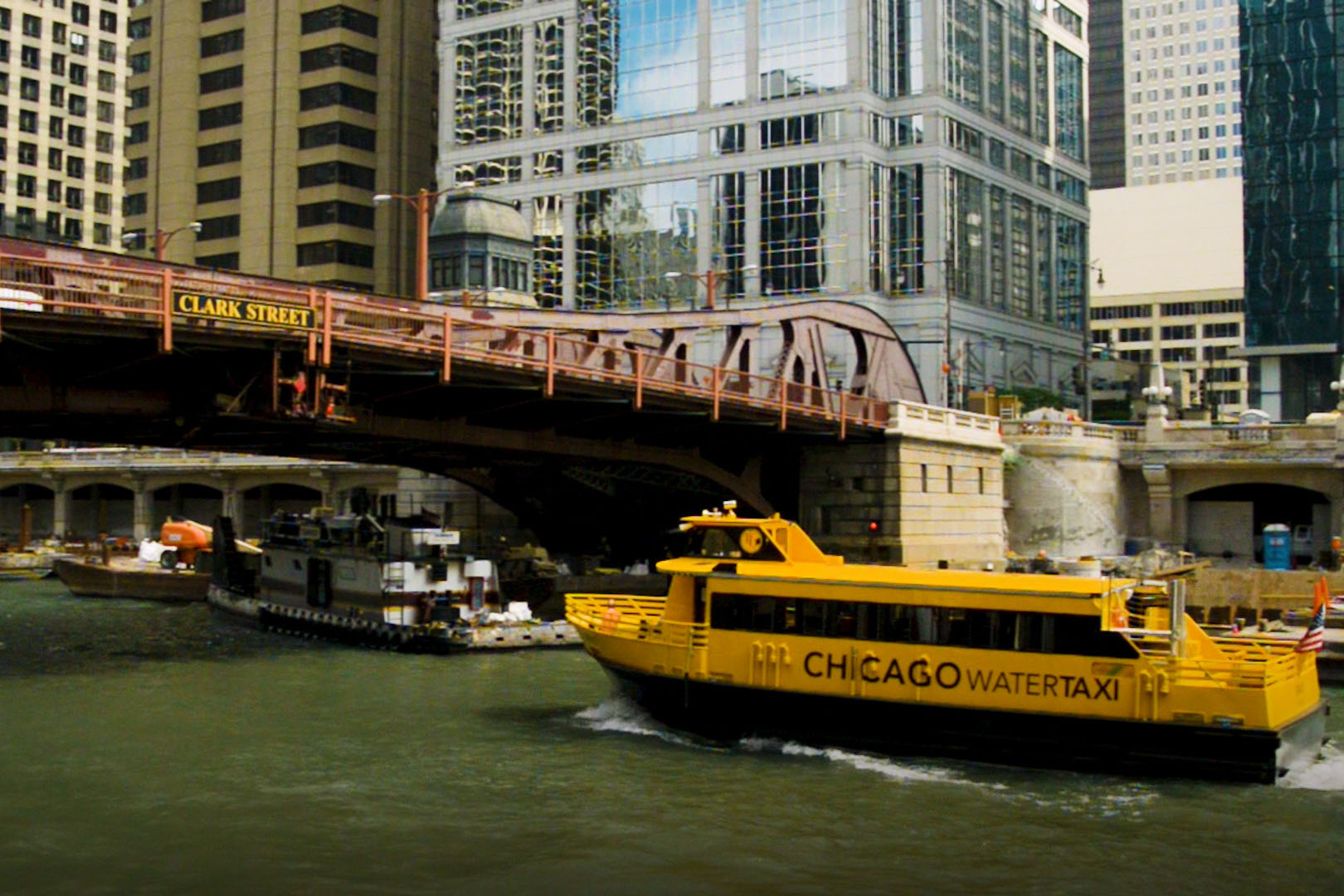

How It's Done:
NEON SIGNS
Grainger Everyday Heroes: Water Taxi Crew
By Grainger Editorial Staff 5/6/20
If you ask most Chicagoans about their morning commute, restful and peaceful would not be words they would use to describe it. Unless their commute includes the 12-minute water taxi ride from Michigan Avenue to Union Station. Listen to Andrew Sargis, Chief of Operations of the Chicago Water Taxi, talk about the fleet of four boats that provides public transportation up and down the Chicago River.
We like to say that this is the most congested waterway in the United States. In addition to all the tour boats, you also have barges, construction, kayakers, sailboats, private yachts and rental operations. On a Saturday, especially in July and August, you have all those operators out here [on the Chicago River].
I am Andrew Sargis, and I am the Chief of Operations of the Chicago Water Taxi. We are a fleet of four boats that provides public transportation up and down the Chicago River.
The history of Chicago Water Taxi is really rooted in the history of Wendella. Wendella are the tour boats that you see behind me. Wendella Boats started in 1935 by Swedish immigrants giving architectural tours, narrated history tours of Chicago. Then in 1962, it began doing commuter runs during morning and afternoon rush hour from the Union and Ogilvie train stations to Michigan Avenue. At that point, the market for the water taxi service was so big that Wendella decided to invest in its own commuter service that operated solely as a commuter service, as opposed to tour boats. Then in 2007, it was rebranded the Chicago Water Taxi. We painted them yellow and black, which has made the fleet a lot more iconic in the downtown Chicago area.
We have a bunch of different stops on the Main Branch, South Branch and North Branch of the Chicago River. We operate from March to November every year. We typically [taxi] between 300,000 and 400,000 people a year around the city. Slowly but surely, we've added more stops. We added Chinatown in 2008 and North Avenue in 2012. We are hoping to continue to add stops every few years and add more boats every few years.
During rush hour, our clientele is very commuter based. It's people that are taking the train from the suburbs into the Loop, and then from there we bring them to their place of business in River North. But [on off] hour periods, it's mostly all tourists, international, national or sometimes just locals.
Most [other] water taxis aren't operating as rapid transit the way we are here [in Chicago]. They're making 30- to 45-minute trips across a bay or a sound. We're going literally right through the city on our river, and we're making stops every 10 to 12 minutes.
The boat that we were just on makes up to 90 stops a day and docks 90 times a day, which is unlike any [water taxi] operator in the U.S. We know this because we're a very active member of the Passenger Vessel Association. We compare and contrast our experience and service with others around the U.S. It's been made pretty apparent that we have a very unique application.
We also operate in very close quarters. This river's about 20 feet deep and as you can see, this is one of the widest points on the river. It's a very congested waterway, and our captains are very skilled at operating the [taxis the] way they do on this waterway.
[Taking the water taxi is] a lot less stressful than driving downtown. It's a lot more peaceful than taking a regular land taxi. Timewise from Michigan Avenue to Union Station, we do beat a bus that's on land. It takes about 12 minutes to get there. It's like a little vacation every day to have a boat ride at the beginning and end of your day. There's no comparing the quality of commute between being on a boat or a bus.
![]()
The information contained in this article is intended for general information purposes only and is based on information available as of the initial date of publication. No representation is made that the information or references are complete or remain current. This article is not a substitute for review of current applicable government regulations, industry standards, or other standards specific to your business and/or activities and should not be construed as legal advice or opinion. Readers with specific questions should refer to the applicable standards or consult with an attorney.






